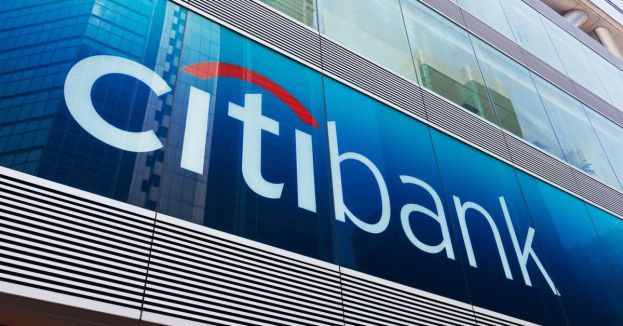The committee, led by Chairman Jim Jordan, aims to determine the extent to which financial institutions, including Citibank, may have shared customer information with federal law enforcement agencies without any individualized connection to criminal activity.
The investigation centers around the alleged sharing of data related to transactions made in the Washington, D.C. area around the time of the January 6 Capitol incursion. According to Rep. Jordan, evidence obtained by the committee indicates that at least one major financial institution, Bank of America (BoA), voluntarily provided the FBI with private financial data without any legal process.
WATCH TRUMP: EUROPE HAS OPENED IT'S DOORS TO JIHAD![]()
The data included a list of individuals who made transactions in the Washington, D.C. metropolitan area with a BoA credit or debit card between January 5 and January 7, 2021. Individuals with firearms purchases on their bank records were given priority on this list, regardless of the timing or location of the purchase.
WATCH DUKE PROFESSOR: STUDENTS VIEWING THE WORLD AS OPPRESSOR VS. OPPRESSED![]()
Documents obtained by the committee also suggest that the FBI provided BoA with specific search terms to identify customers who had made any historical purchase of a firearm, or who had purchased hotel, Airbnb, or airline travel within a specific date range. This data could potentially have been used to track the movements of individuals suspected of involvement in the Capitol riot.
KEVIN SPACEY'S DARK SECRETS EXPOSED IN NEW DOCUMENTARY SERIES![]()
August 21, 2023
In addition to Bank of America, the committee has reached out to other major financial institutions, including Citibank, J.P. Morgan, PNC, Truist, U.S. Bank, and Wells Fargo, to determine if they were involved in similar conduct. Citibank is the only institution that has chosen not to comply with the investigation thus far.
IDIOT ALERT: CEO PRAISES RADICAL PROTESTERS, FACES IMMEDIATE BACKLASH![]()
The committee's letter to Citibank states that the institution was requested to voluntarily cooperate with the oversight to determine the extent of its involvement in sharing Americans' financial data with the FBI. However, Citibank has declined to comply voluntarily and has indicated that it will only cooperate if subpoenaed.
BIDEN AND MARK HAMILL'S "STAR WARS DAY" VIDEO: A GALACTIC SUCCESS OR EPIC FAIL?![]()
Citibank's involvement in the investigation stems from the fact that a representative from the company participated in discussions organized by the FBI and the Financial Crimes Enforcement Network. These discussions focused on finding the best approach to information sharing following the events of January 6.
ELITE UNIVERSITIES FACE A NEW CRISIS: OUTRAGED PARENTS ![]()
Chairman Jordan expressed concern over the FBI's use of back-channel discussions with financial institutions and emphasized the need to understand the extent of collaboration between Citibank and the FBI, as well as other executive branch entities, in collecting Americans' data without a specific connection to criminal conduct.
WHY IS CINCO DE MAYO CELEBRATED MORE IN THE U.S. THAN MEXICO?![]()
In addition to the subpoenas issued to Citibank, Chairman Jordan also sent subpoenas to U.S. Attorney General Merrick Garland and FBI Director Christopher Wray. The subpoenas allege that the FBI and the Department of Justice colluded with Big Tech and other intermediaries to censor certain viewpoints, violating the First Amendment.
TRUMP'S HIGH-DOLLAR MAR-A-LAGO FUNDRAISER, ALSO A VP SHOWDOWN?![]()
Furthermore, earlier this month, the committee obtained documents revealing that multiple FBI field offices collaborated on an internal memo that reportedly equated traditional Catholics with domestic terrorists.
The investigation into the potential illegal sharing of Americans' private data with the FBI continues, with Citibank now facing a subpoena to provide the requested information. The committee aims to shed light on the extent of collaboration between financial institutions and law enforcement agencies, as well as any potential violations of privacy rights.








 Discover alternative ideas that will make you think
Discover alternative ideas that will make you think Engage in mind bending debate
Engage in mind bending debate Earn points, rise in rank, have fun
Earn points, rise in rank, have fun


